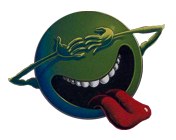EPA backtracks from approval of pesticide that kills off honey bees.
http://news.yahoo.com/u-court-finds-epa-wrong-approve-dow-pesticide-184509403--finance.html
Your tax dollars responsible for killing honey bees.
So does this mean a giant law suite for the honey industry?
Quote "By Carey Gillam
(Reuters) - A U.S. appeals court ruled on Thursday that federal regulators erred in allowing an insecticide developed by Dow AgroSciences onto the market, canceling its approval and giving environmentalists a major victory.
The ruling by the U.S. Court of Appeals for the Ninth Circuit, in San Francisco, is significant for commercial beekeepers and others who say a dramatic decline in bee colonies needed to pollinate key food crops is tied to widespread use of a class of insecticides known as neonicotinoids. Critics say the Environmental Protection Agency is failing to evaluate the risks thoroughly." end quote.
So what this insecticide does by killing honey bees is it puts to risk the pollination of all other crops.
http://news.yahoo.com/u-court-finds-epa-wrong-approve-dow-pesticide-184509403--finance.html
Your tax dollars responsible for killing honey bees.
So does this mean a giant law suite for the honey industry?
Quote "By Carey Gillam
(Reuters) - A U.S. appeals court ruled on Thursday that federal regulators erred in allowing an insecticide developed by Dow AgroSciences onto the market, canceling its approval and giving environmentalists a major victory.
The ruling by the U.S. Court of Appeals for the Ninth Circuit, in San Francisco, is significant for commercial beekeepers and others who say a dramatic decline in bee colonies needed to pollinate key food crops is tied to widespread use of a class of insecticides known as neonicotinoids. Critics say the Environmental Protection Agency is failing to evaluate the risks thoroughly." end quote.
So what this insecticide does by killing honey bees is it puts to risk the pollination of all other crops.
Last edited:



